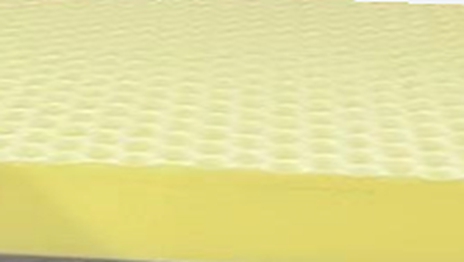Finding the Best Mattress Options for Comfort and Support in Managing Scoliosis Issues
Choosing the Right Mattress for Scoliosis
Scoliosis is a condition characterized by an abnormal curvature of the spine, affecting individuals of all ages. It can lead to discomfort, pain, and even significant health problems if left untreated. For those suffering from scoliosis, the importance of a good mattress cannot be overstated. A suitable mattress can provide the necessary support and comfort, potentially alleviating some symptoms and improving overall sleep quality.
When selecting a mattress for scoliosis, several factors should be considered to ensure it meets the specific needs of the individual. Here are some key points to keep in mind
1. Support and Firmness
One of the most critical aspects of any mattress for someone with scoliosis is support. A mattress that is too soft may not provide adequate support for the spine, leading to improper alignment during sleep. Conversely, a mattress that is too firm may cause pressure points, exacerbating discomfort. Ideally, the mattress should strike a balance, providing enough firmness to support the spine while also offering cushioning to relieve pressure points. Medium-firm mattresses are often recommended as they tend to provide the right balance for those with scoliosis.
The material of the mattress plays a significant role in its performance. Memory foam and latex mattresses are popular choices for individuals with scoliosis. Memory foam contours to the body, providing customized support and helping to maintain spinal alignment. It can also absorb movement, making it an excellent choice for couples. Latex mattresses, on the other hand, offer a more buoyant feel and are often more breathable, which helps regulate temperature during sleep.
In addition to foam and latex, hybrid mattresses that combine innerspring coils with foam or latex layers are also worth considering. These mattresses can provide the support of traditional innerspring mattresses while also offering the comfort of foam.
mattress for scoliosis

3. Sleep Position Considerations
The preferred sleeping position can significantly influence the choice of mattress. Side sleepers often benefit from a softer surface that cushions the shoulders and hips, promoting better spinal alignment. Back sleepers, however, may require a firmer mattress that supports the natural curvature of their spine. Stomach sleepers typically benefit from a firmer surface to prevent the hips from sinking too deeply, which could lead to misalignment.
4. Trial Periods and Warranty
Purchasing a mattress is a significant investment, especially for those with specific health needs. It’s crucial to choose a mattress from a retailer that offers a generous trial period. This allows individuals with scoliosis to test the mattress in their home environment and make sure it meets their needs. Additionally, a good warranty can provide peace of mind, protecting the investment against defects or sagging that could compromise support over time.
5. Consulting Healthcare Professionals
Before making a final decision on a mattress, it can be beneficial to consult with healthcare professionals such as chiropractors or physical therapists. These experts can provide personalized recommendations based on the severity of the scoliosis, individual sleeping patterns, and overall physical condition.
Conclusion
Finding the right mattress is vital for managing scoliosis symptoms and ensuring a restful night's sleep. By considering support, material, sleep position, and professional guidance, individuals with scoliosis can make informed decisions that significantly improve their comfort and quality of life. Investing time and effort into selecting the right mattress can lead to better sleep, reduced pain, and an overall enhancement in daily wellbeing. Remember, the journey to finding the perfect mattress may take time, but the benefits it brings are well worth the effort.
-
The Science Behind Silicon Mattresses for Critical Care EnvironmentsNewsJul.16,2025
-
The Role of Wave Mattress Systems in Pressure Ulcer PreventionNewsJul.16,2025
-
The Role of ICU Nursing Silicon Mattress in Preventing Pressure UlcersNewsJul.16,2025
-
Long-Term Bedridden Patients and the Advantages of Silicon Mattresses in the ICUNewsJul.16,2025
-
From ICU to Home Care: Expanding the Use of Silicon Mattresses for Nursing NeedsNewsJul.16,2025
-
Choosing the Right Wave Mattress for Different Levels of Patient CareNewsJul.16,2025
-
The Effect of Coconut Foam Mattress Breathability and Humidity Regulation on Improving Sleep QualityNewsJul.03,2025

